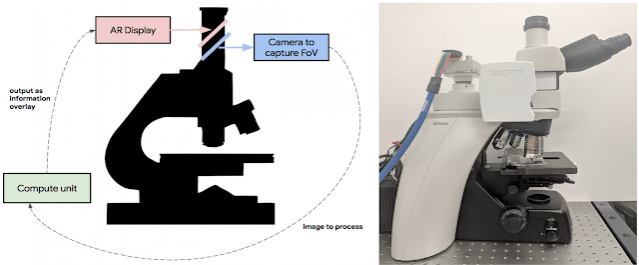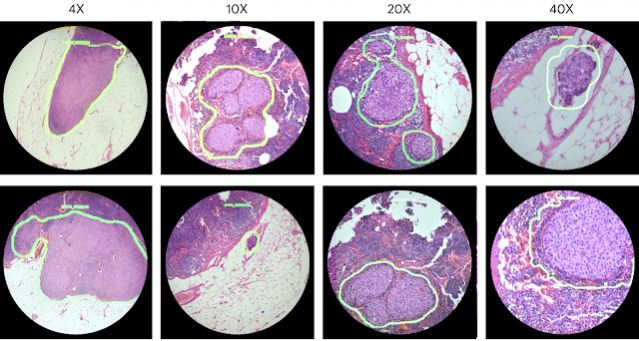Augmented Reality (AR), machine learning and artificial intelligence have found several uses in various fields and medical applications show great promise for the emerging technology. Google is utilizing these advanced technologies to bring breakthrough advancements into the medical field.
Google announced in a blog post on Monday that it has developed an Augmented Reality Microscope (ARM), which is still a prototype but can help real-time detection of breast and prostate cancer. But since it uses AI and machine learning, Google can train the ARM to detect other types of cancers as well.
Google ARM, the brainchild of Google Brain – the company's AI research division, combines the automated machine learning systems with human expertise to bring efficiency in detecting cancerous growth. It consists of a modified light microscope that gives real-time analysis directly into the field of view using AR.

ARM highlights areas that look suspicious for cancerous growths with a green outline and it continuously refreshes as the slide is repositioned. This could result in faster diagnosis leading to quicker treatment and little room for human errors.
"This digital projection is visually superimposed on the original (analog) image of the specimen to assist the viewer in localizing or quantifying features of interest. Importantly, the computation and visual feedback updates quickly — our present implementation runs at approximately 10 frames per second, so the model output updates seamlessly as the user scans the tissue by moving the slide and/or changing magnification," Google said in an official blog post.

Google says ARM can be retrofitted into existing light microscopes in hospitals and clinics using low-cost, readily available components. The platform can have a major impact on the global health industry, especially in the developing countries, where the diagnosis of infectious diseases like TB and malaria require an early diagnosis for effective treatment.
But ARM still requires trained professionals to operate the equipment.
"We believe the ARM can be adapted for a broad range of applications across healthcare, life sciences research, and material science. We're excited to continue to explore how the ARM can help accelerate the adoption of machine learning for positive impact around the world," Google noted.
Google has published a detailed paper on ARM at the Annual Meeting of the American Association for Cancer Research. The paper is subject to review.
















